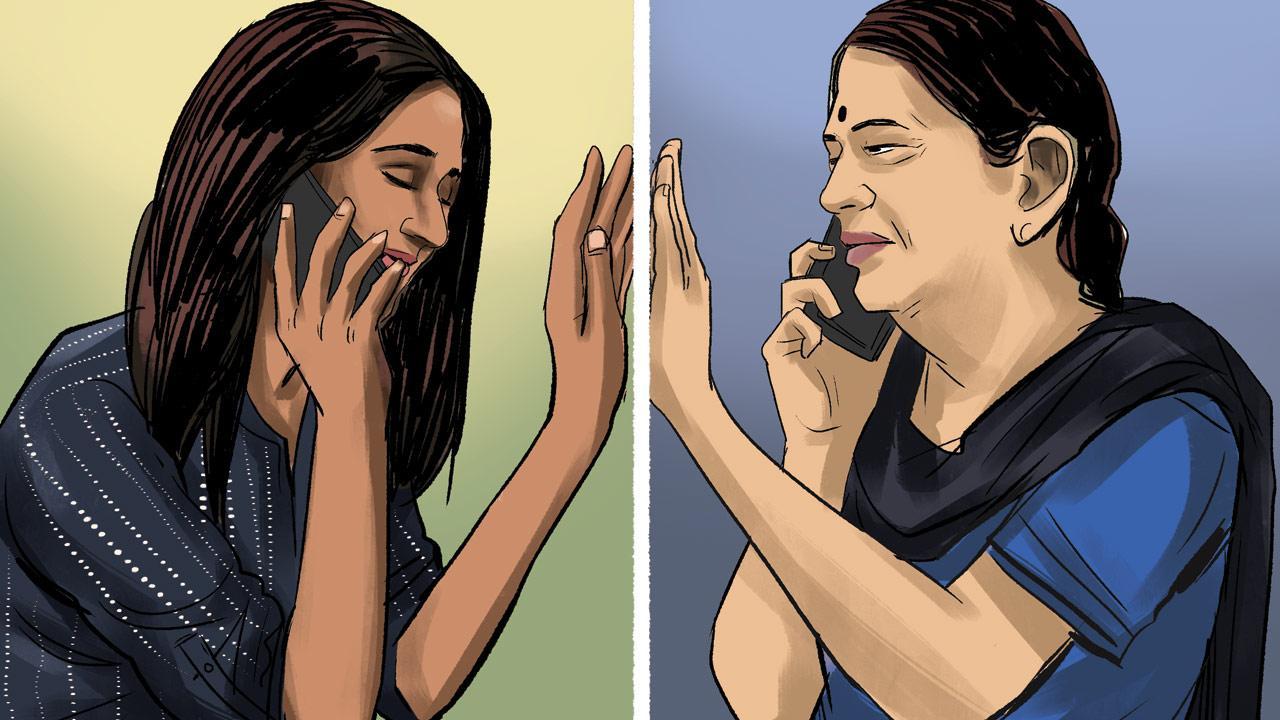The bail conditions do not allow her to leave Mumbai or discuss her case.

Illustration/Uday Mohite
![]() I am revisiting Sudha Bharadwaj’s courageous, revealing and inspiring book From Phansi Yard: My Year with the Women of Yerawada (Juggernaut Books, Rs 799 hardcover, Rs 499 online). Early one morning in August 2018, Bharadwaj was arrested. She is a respected trade unionist and human rights lawyer, who actually gave up her US citizenship and took up Indian citizenship, choosing to work for the rights of the poor and tribals in India, in Chhattisgarh and elsewhere, for over three decades. She was charged under the Unlawful Activities (Prevention) Act, UAPA, of inciting violence in Bhima Koregaon village in Maharashtra. At the time Bharadwaj was arrested, she was working as a visiting professor at the National Law University in Delhi, and is raising a young daughter, Maaysha. Arrested along with several other human rights activists, Bharadwaj is contesting the charges in court. She spent over three years in prison, from November 2018 to December 2021, in Yerawada Jail, Pune, and in Byculla Jail, Mumbai, before being released on bail in December 2021. The book is based on her prison diaries, partly initiated by Ajaz Ashraf, senior journalist and mid-day columnist. The bail conditions do not allow her to leave Mumbai or discuss her case.
I am revisiting Sudha Bharadwaj’s courageous, revealing and inspiring book From Phansi Yard: My Year with the Women of Yerawada (Juggernaut Books, Rs 799 hardcover, Rs 499 online). Early one morning in August 2018, Bharadwaj was arrested. She is a respected trade unionist and human rights lawyer, who actually gave up her US citizenship and took up Indian citizenship, choosing to work for the rights of the poor and tribals in India, in Chhattisgarh and elsewhere, for over three decades. She was charged under the Unlawful Activities (Prevention) Act, UAPA, of inciting violence in Bhima Koregaon village in Maharashtra. At the time Bharadwaj was arrested, she was working as a visiting professor at the National Law University in Delhi, and is raising a young daughter, Maaysha. Arrested along with several other human rights activists, Bharadwaj is contesting the charges in court. She spent over three years in prison, from November 2018 to December 2021, in Yerawada Jail, Pune, and in Byculla Jail, Mumbai, before being released on bail in December 2021. The book is based on her prison diaries, partly initiated by Ajaz Ashraf, senior journalist and mid-day columnist. The bail conditions do not allow her to leave Mumbai or discuss her case.
ADVERTISEMENT
Bharadwaj was born in Boston to parents who were academics. Later, after securing an MS in Mathematics from IIT Kanpur, she worked in Chhattisgarh as a trade unionist and activist with the Chhattisgarh Mukti Morcha “that fought corrupt forest officials and moneylenders and built ponds.” At 39, she also qualified as a lawyer. In 2018, someone told her to watch Republic TV “as I was being ranted about there,” she writes. “I was shocked and served a defamation notice on the channel and its editor and anchor, Arnab Goswami… I was anxious, but actually it seemed more Kafkaesque than anything else.” On 28 August 2018, she was arrested.
In Yerawada Jail, she was lodged in the Phansi Yard (death row) of the Women’s Jail, along with Prof Shoma Sen, a co-accused in the same case, in single cells. “We were never told why we were in this high security unit for death row prisoners, but it probably had something to do with our being arrested under the draconian Unlawful Activities (Prevention) Act, UAPA,” she writes. Her prison diary gave her a sense of purpose; listening to the other women “didn’t leave any scope for self-pity,” and it made her realise the urgency of legal reform. She writes of meeting Maaysha in the Mulakat Room: “She cries into the telephone as she speaks to me.
We both touch the glass that separates us, trying to connect.” But many women “in far more difficult circumstances” taught her “how to survive injustice, how to remain hopeful… even behind bars.”
Many women have been granted bail, yet continue to languish in jail, because they are unable to arrange the sureties. Many are illiterate and unable to read their chargesheets, find out the date of their next court hearing, or what order was passed, or get competent legal help, despite the National Legal Services Authority. She soon becomes Vakeel Aunty, providing legal aid to hundreds of fellow prisoners.
She celebrated her 60th birthday in Byculla Jail, where fellow prisoners resourcefully made a cake of Marie biscuits and Britannia rusk, topped with Bournvita paste, with her name written in jam. On December 1, 2021, when the Bombay High Court granted her bail, she writes, “My heart was torn in two because Shoma Di (Shoma Sen) and my other co-accused did not get relief” (Shoma Sen and some others were later released on bail). “On rare days, I get a phone call from an unknown number, ‘Hey Aunty, remember me? I got released!’ I feel a lightness that I can’t explain,” she writes.
Salute to the courageous, inspiring and compassionate Sudha Bharadwaj, and to Chiki Sarkar of Juggernaut Books, who published this book, both showing us a reality of India today. And here’s to Bharadwaj’s fellow prisoner, who sings “DJ wale babu, mera gaana chala do.”
Meenakshi Shedde is India and South Asia Delegate to the Berlin International Film Festival, National Award-winning critic, curator to festivals worldwide and journalist.
Reach her at [email protected]
 Subscribe today by clicking the link and stay updated with the latest news!" Click here!
Subscribe today by clicking the link and stay updated with the latest news!" Click here!







